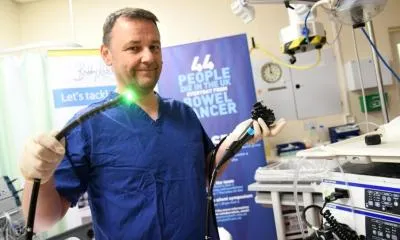AI and Early Detection of Bowel Cancer: A Revolutionary Breakthrough

AI Technology Revolutionizing Bowel Cancer Detection
In a groundbreaking study led by @BottProf from @UniofNewcastle, researchers at Newcastle University have unveiled the transformative potential of AI in enhancing the early detection of bowel cancer. Collaborating with the South Tyneside and Sunderland NHS Foundation Trust, this study provides evidence of the increased efficiency of diagnostic processes.
Pivotal Findings from the Study
- Increased Detection Rates: The study indicates that AI algorithms can identify early signs of bowel cancer more effectively than traditional methods.
- Improved Efficiency: Implementing AI technology in healthcare systems can streamline diagnosis procedures.
- Potential for Lives Saved: Earlier detection enhances treatment options and potentially saves lives.
As the healthcare industry embraces technological advancements, this research paves the way for broader adoption of AI in cancer diagnostics, emphasizing the importance of ongoing innovation.
This article was prepared using information from open sources in accordance with the principles of Ethical Policy. The editorial team is not responsible for absolute accuracy, as it relies on data from the sources referenced.